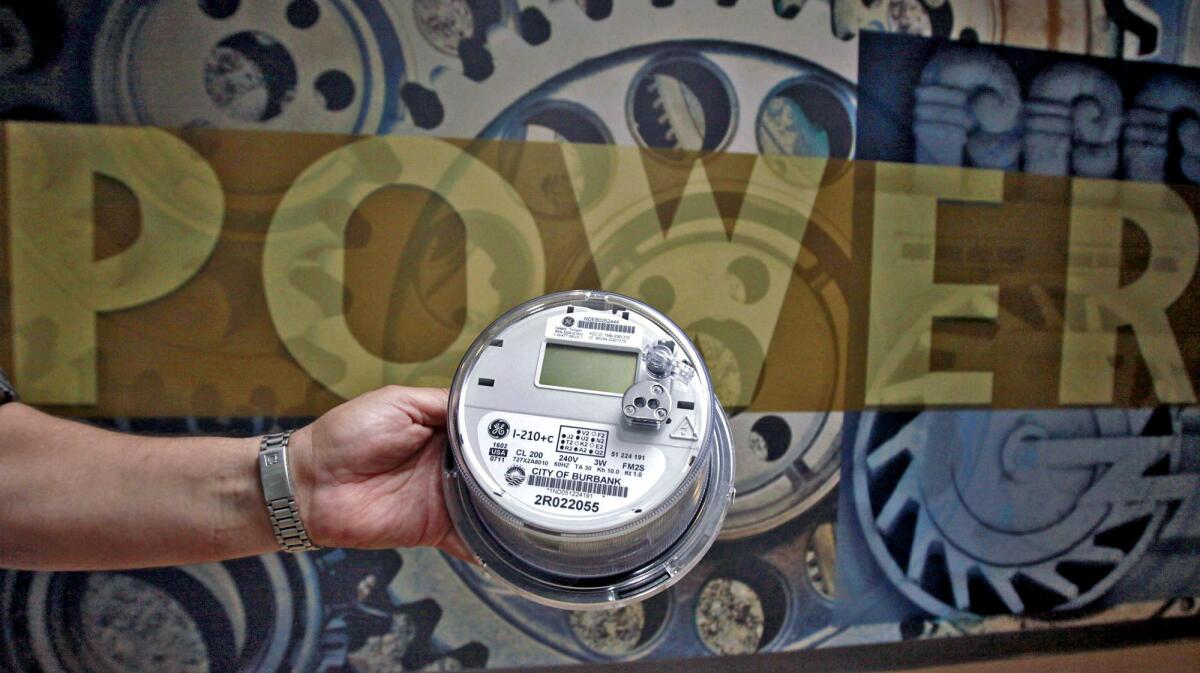Council approves utility rate increases

Burbank Water & Power spokesman Joe Flores holds a Smart Meter at the utility’s building on Magnolia Avenue in Burbank on Wednesday, September 28, 2011.
Following a contentious debate about utility rates, Burbank City Council members on Tuesday voted 4-1 to raise the rates for water, power, sewer and refuse services.
The average customer will see an increase of 35 cents, or 1.5%, for sewer fees. Refuse fees will tick up 1%, or 32 cents on average.
Water rates will go up 3.4%, or roughly $1.86 a month, and power rates will rise 2.1%, or about $2.48 a month. Burbank Water and Power General Manager Ron Davis has said the utility is cutting into its cash reserves to keep rates low.
The approval adds the increases into the city-wide fee schedule, which the council is expected to consider on June 2.
Councilman David Gordon cast the only vote against the rate hikes after pressing Davis on the utility’s rate increases and reliance on renewable sources for one third of its energy production.
The use of renewables under a state mandate forces the city to pay producers more than the market rate for energy “we don’t want, don’t need,” Gordon argued, recalling Davis’ words from discussions on the issue in recent meetings. He suggested there might be other ways to avoid rate increases.
Davis responded by challenging Gordon to find a better-run utility anywhere in the region. He said there are no other models to imitate, pointing out that Burbank has among the lowest rates and adding that he has “no choice” in following the policy on renewable energy that has been set at both state and city levels.
Gordon argued that the city should “send a message” to Sacramento about the renewable energy mandate and its effect on utility rates. He also protested against a plan Davis outlined that would raise water and power rates by 3.4% and 2.1%, respectively, each year for five years in order to help the utility recover its cash position, pointing out that those increases will compound.
His colleagues, however, challenged him to propose more concrete solutions to the rising rates, which are in part due to lower demand as a result of conservation and higher costs.
Councilman Will Rogers said he didn’t see a “groundswell” of opposition to the rate increases from the community. The council received only five letters of protest against the proposed new rates.
“For the most part, people are accepting that things cost more,” Rogers said. “Clean air, reliable water cost more.”